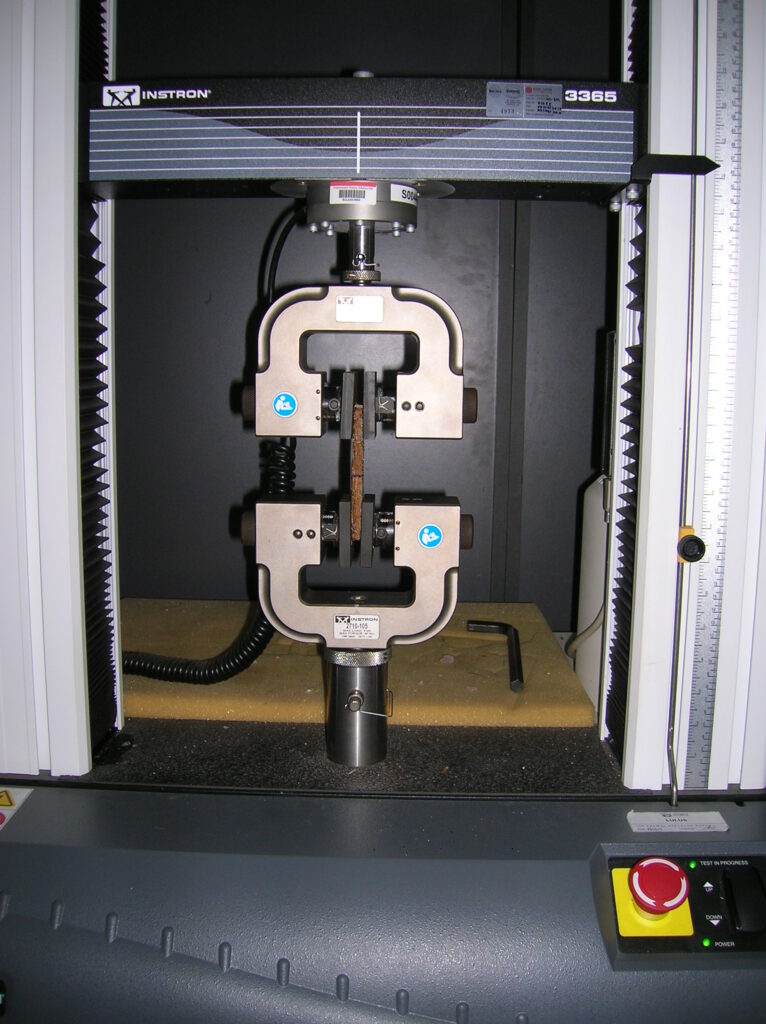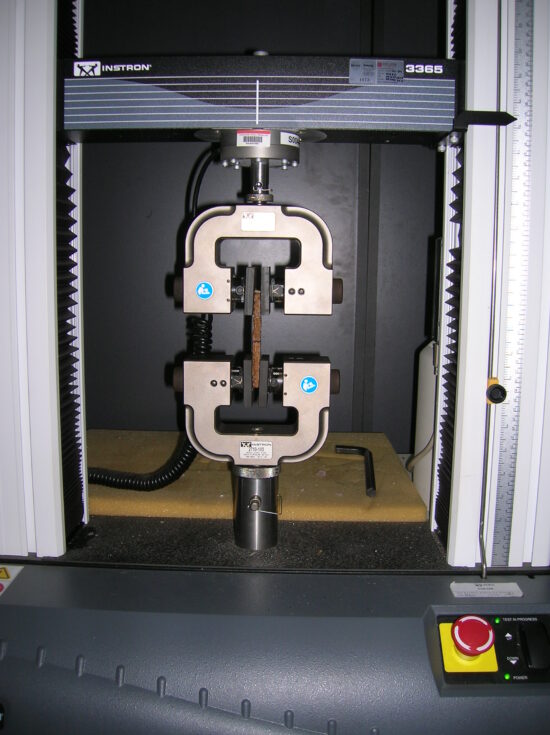
Contents
About Textile Tensile Testing Machine
A tensile testing machine, Textile tensile testing machines are used to measure the tensile properties of textile materials, including fabrics, yarns, and fibers. These machines can test a fabric’s strength, ability to stretch, and stiffness, all of which are important for figuring out how well it will work in different situations.
Fabrics, fibers, yarns, and other types of textile materials can all have their tensile strength as well as their other mechanical properties measured with the use of a Textile Tensile Testing Machine. This piece of specialized machinery is utilized in the textile business. The machine puts the specimen under a predetermined amount of tension or force while simultaneously measuring the specimen’s corresponding degree of deformation, strain, or elongation.
A load cell, a grip system, and a control system are the individual components that make up the machine. While the load cell measures the force that is being applied to the specimen, the frame is responsible for holding the specimen and applying the force through the grip system. The control system is responsible for managing the test parameters, which include the pace at which the test is performed, the amount of force that is delivered, and the data acquisition.
There are a variety of various types of textile tensile testing machines available. The application and the material being evaluated both play a role in determining which equipment to use. For instance, some machines are intended for use in determining the tensile strength of yarns or threads, while others are appropriate for determining the tear strength or burst strength of fabrics.
In order to evaluate the quality and performance of the textile material, the results obtained from the textile tensile testing machine can be used. These results can also be compared with the results of other materials or manufacturing processes, and they can be used to ensure compliance with industry standards and regulations.
There are two types of textile tensile testing machine: universal testing machines and specialized textile testing machines. Universal testing machines are used to test a wide range of materials, including textiles. They can do tension, compression, and flexural tests. Textile testing machines are made just for testing textiles and can do tests like the strip method, the grab method, and the puncture method.
In textile testing, it is important to establish testing standards to ensure accurate and repeatable results. Standards organizations such as ASTM International, ISO, and AATCC have developed standards for textile testing, including methods for preparing samples, testing procedures, and reporting results.
Textile tensile testing machines are very important for making sure that textile products are safe and of good quality. By measuring the tensile properties of textiles, these machines can help manufacturers make better products and make sure they meet government standards. As technology keeps getting better, textile testing machines will get even better and be able to test fabrics more accurately and quickly.
Types of Tests and Applications
- Tensile strength testing: procedure and standards for yarns, fibers, and fabrics
- Tear strength testing: method and significance for evaluating fabric resistance to tearing
- Burst strength testing: purpose and procedure for assessing fabric strength under pressure
- Other tests: compression, bending, shearing, friction, etc.
Examples of Textile Tensile Testing Machines
- Universal testing machine: features and capabilities for various materials
- Single-column and dual-column machines: advantages and limitations
- Specialty machines: e.g., for geotextiles, nonwovens, composites, etc.
- Accessories and software: grips, extensometers, cameras, databases, etc.
The Bottom Line
A textile tensile testing machine is an essential piece of equipment for the textile industry. This machine gives manufacturers and researchers the ability to properly measure and quantify the mechanical properties of textile materials.
